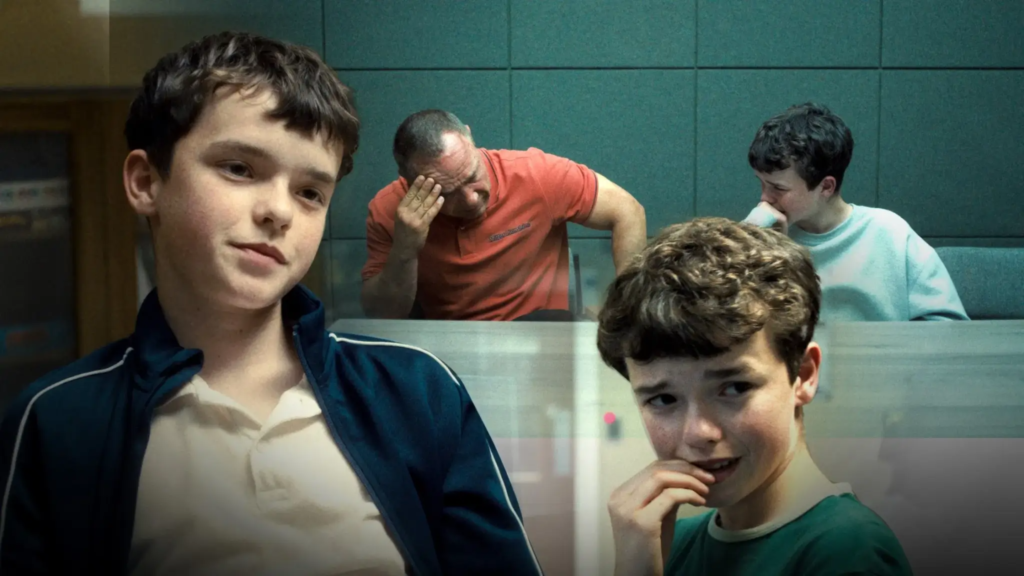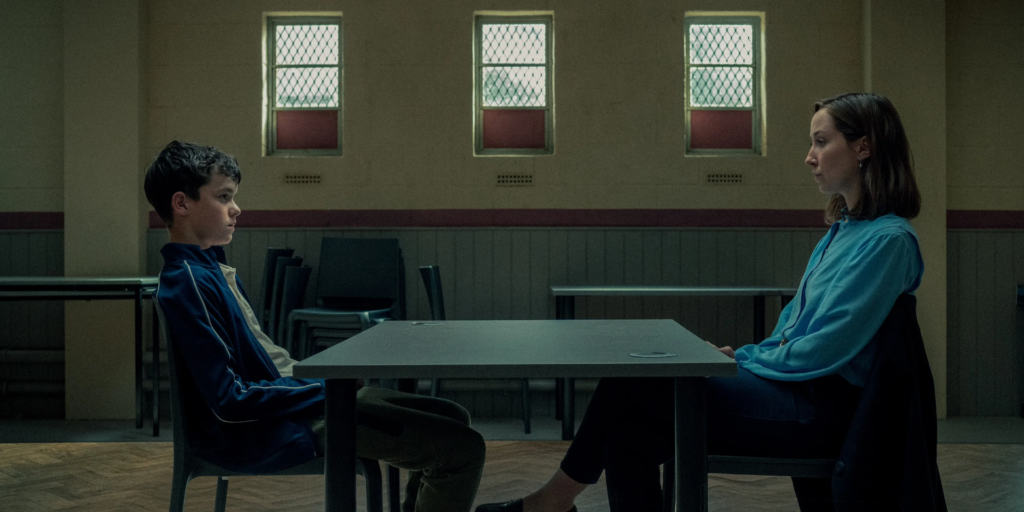Adolescence Netflix Ending Explained:
The Chilling Truth Behind Jamie’s Silence
Okay, let’s get this out of the way—Adolescence on Netflix is not your average coming-of-age story. It’s disturbing, raw, and deeply uncomfortable in the best (read: worst) way possible. If you’ve finished watching and found yourself staring at your screen in shock, wondering what just happened?, don’t worry—I’ve been there. So let’s unpack it all, because this one? This one sits with you.
From its haunting atmosphere to its brutally honest portrayal of how young minds can be influenced by the darkest corners of the internet, Adolescence is a crime drama that doesn’t hold back. And with Adolescence Netflix ending explained being one of the biggest questions viewers have right now, let’s get into it—from plot to finale.
What Is Adolescence About?

The show kicks off with the arrest of 13-year-old Jamie Miller (played by Owen Cooper) for the murder of his classmate, Katie Leonard. And yes, that’s as shocking as it sounds. What follows is a chilling deep-dive into a family crumbling under the weight of unanswered questions, and a teenage boy whose quiet demeanor hides something deeply sinister.
Set in a British working-class town, the four-episode miniseries slowly unravels the timeline leading to the murder, revealing how Jamie’s online habits, emotional isolation, and exposure to toxic ideologies set off a chain of events no one saw coming.
The Internet Rabbit Hole: A Dangerous Descent
This is where Adolescence really hits hard. Jamie isn’t some obvious villain. He’s awkward, smart, quiet—just a regular kid. But through chats and forums, he finds the “manosphere,” a dark online space filled with misogyny, rage, and dangerous ideas disguised as truth. And he’s not the only one.
The show never glamorizes this path—it exposes it. And that’s what makes it so terrifyingly real. You’re left asking: How many Jamies are out there?
Adolescence Netflix Ending Explained: Breaking Down the Final Moments
Let’s talk about that ending. After maintaining a blank stare and almost complete silence through interrogations, Jamie finally pleads guilty in court. No last-minute reveal, no defense, no twisty courtroom drama. Just a boy who admits he killed someone—and then disappears behind cold metal bars.
The real gut-punch though? The final scene.
Jamie’s dad, Eddie (played with heartbreaking intensity by Stephen Graham), sits alone in Jamie’s bedroom. There are no answers. No closure. Just grief. You can feel the weight of everything unsaid, everything missed. It’s one of the most human, painful portrayals of parental guilt I’ve seen on screen in a while.
That’s the genius of the Adolescence Netflix ending—it doesn’t scream the truth at you. It lets the silence speak.
Why Adolescence Feels So Real (And Hurts So Much)
This show gets under your skin because it doesn’t try to shock you with gore or dramatics. It tells the truth. About the internet. About growing up in a world where it’s so easy to get lost. About what happens when we don’t talk to each other—really talk.
It’s not just a crime drama. It’s a commentary on society, on parenting, on adolescence (duh), and on how easily we overlook signs until it’s too late.
The Performances? Top-Tier.
Special shoutout to Owen Cooper for being terrifyingly brilliant as Jamie even though he’s just 15 and this is his debut. He’s not loud or wild or angry. He’s just… blank. And somehow, that’s even scarier. Stephen Graham (you might know him from Line of Duty or This Is England) absolutely destroys you in every scene. His portrayal of Eddie is so raw and real, it hurts to watch. You feel his confusion, his anger, and his desperate need to understand his son. But sometimes, there just aren’t answers.
So, What Was Adolescence Really About?
If I had to sum it up? Adolescence is about how silence can be dangerous. How loneliness festers. How easy it is for a young, impressionable mind to be manipulated when no one is paying attention. And ultimately, how devastating it is when help comes too late.
The ending isn’t satisfying in a traditional sense. There’s no justice, no resolution. But that’s the point. The system fails. The family fails. And Jamie—he never really speaks.
Final Thoughts: Is Adolescence on Netflix Worth Watching? Ending Explained
Absolutely. But go in knowing this isn’t an easy watch. It’s not entertainment—it’s a mirror. And the reflection is ugly.
Still, if you’re someone who likes your thrillers smart, painful, and painfully relevant—this one’s for you. Adolescence Netflix ending explained might be a search trend right now, but this show is a conversation starter that needs to last way longer than a Google search.
Can’t get enough of the dark, twisty, no-happy-ending energy? I’ve got you. Dive into Famous Thriller Novels Where the Bad Guy Wins—a lineup of books that are just as morally complex and psychologically intense as Adolescence.
But if Adolescence Netflix left you emotionally shredded (relatable), maybe it’s time to switch gears. I’ve also written about some feel-good rom-coms that might help you recover—because sometimes, we just need laughs, love, and chaos of a different kind.
[Rom-Coms Inspired by Shakespeare and Classic Books]
[5 Rom-Coms That Made Me Laugh, Cry & Scream at the Screen]

